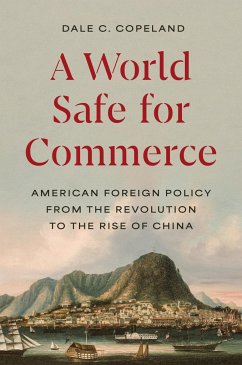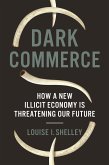When seeking to understand why nations come into conflict, political scientists tend to focus either on threats to national security (realism) and or on moral duty, ideology, and domestic pressures (liberalism). Liberalism has been the major lens for international relations scholars analyzing the United States, due to the country's strong democratic foundations. In this expansive new book, Dale Copeland argues that the realist cast can shed fascinating light on American foreign policy--if one looks beyond security threats to consider economic threats as well. Copeland's "commercial approach to realism" establishes a new understanding of realism in three ways: by building out a new realist theory, by showing how this commercial approach applies to the United States, and by projecting this theory onto different scenarios that may arise in future conflicts between the United States and China.








